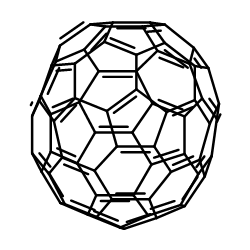A new class of human mast cell and peripheral blood basophil stabilizers that differentially control allergic mediator release.
Sarah K Norton, Anthony Dellinger, Zhiguo Zhou, Robert Lenk, Darren Macfarland, Becky Vonakis, Daniel Conrad, Christopher L Kepley
文献索引:Clin. Transl. Sci. 3(4) , 158-69, (2010)
全文:HTML全文
摘要
Treatments for allergic disease block the effects of mediators released from activated mast cells and blood basophils. A panel of fullerene derivatives was synthesized and tested for their ability to preempt the release of allergic mediators in vitro and in vivo. The fullerene C(70)-tetraglycolic acid significantly inhibited degranulation and cytokine production from mast cells and basophils, while C(70)-tetrainositol blocked only cytokine production in mast cells and degranulation and cytokine production in basophils. The early phase of FcepsilonRI inhibition was dependent on the blunted release of intracellular calcium stores, elevations in reactive oxygen species, and several signaling molecules. Gene microarray studies further showed the two fullerene derivatives inhibited late phase responses in very different ways. C(70)-tetraglycolic acid was able to block mast cell-driven anaphylaxis in vivo, while C(70)-tetrainositol did not. No toxicity was observed with either compound. These findings demonstrate the biological effects of fullerenes critically depends on the moieties added to the carbon cage and suggest they act on different FcepsilonRI-specific molecules in mast cells and basophils. These next generation fullerene derivatives represent a new class of compounds that interfere with FcepsilonRI signaling pathways to stabilize mast cells and basophils. Thus, fullerene-based therapies may be a new approach for treating allergic diseases.
相关化合物
| 结构式 | 名称/CAS号 | 分子式 | 全部文献 |
|---|---|---|---|
 |
富勒烯C70
CAS:115383-22-7 |
C70 |
|
Selective formation and efficient photocurrent generation of...
2010-04-18 [Adv. Mater. 22(15) , 1767-70, (2010)] |
|
Time resolved spectroscopy and gain studies of Fullerenes C6...
2013-09-01 [Spectrochim. Acta. A. Mol. Biomol. Spectrosc. 113 , 400-7, (2013)] |
|
The antioxidative effect of fullerenes during the peroxidati...
2012-01-01 [Biosci. Biotechnol. Biochem. 76 , 212-214, (2012)] |
|
Structural effect and mechanism of C70-carboxyfullerenes as ...
2012-07-09 [Small 8(13) , 2070-7, (2012)] |
|
C60 and C70 electronic absorption spectra in different solve...
2011-02-01 [J. Biomed. Nanotechnol. 7(1) , 199-201, (2011)] |